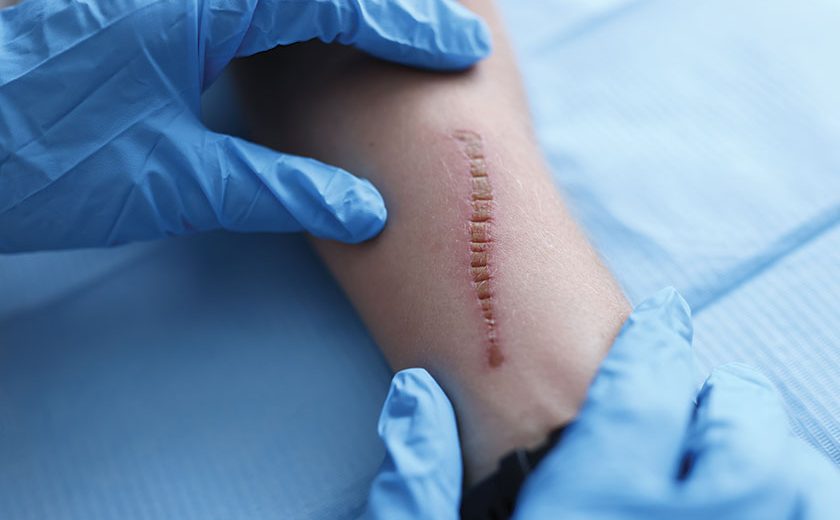After surgery, you will need to take care of the surgical incision as it heals. Your doctor used either stitches, staples, tissue glue, or tape strips to close the surgical incision.
You will need to keep the area clean, change the dressing and watch for signs of infection. Doing so not only lowers the risk of infection, it can help you avoid pain/discomfort, and limits scarring.
The following are 10 tips on taking care of your surgical incisions:
- Avoid friction and trauma to your incision. Do not wear tight clothing against the incision. It is best to avoid movements that affects the area surrounding your wound. That way, you’ll lower your risk of pulling the wound apart.
- Keep your incision covered with clean and dry dressings. Change the dressing according to your doctor’s instructions.
- Showering is preferable to bathing. Soaking the wound will soften the scar tissue and can cause the wound to re-open. You can splash the wound but do not rub the wound area as this will cause pain and delay the healing process.
- Some waterproof dressing can be left in place while you take a bath or shower. Other dressings that is not waterproof will need to be removed before having a bath or shower.
- Do not use skin cleansers, alcohol, peroxide, iodine, or soaps with antibacterial chemicals. These can damage the wound tissue and slow your healing
- Pat the wound dry gently with a clean towel after bathing or showering. You may apply an antibacterial ointment to protect the incision from infection.
- If the surgery was performed on your face, do not wear make-up over the scar until it has fully healed.
- Eat a balanced diet, high in protein, which keeps your skin strong and helps wounds heal.
- If you smoke, quit! Smoking is bad for blood flow and ultimately, skin healing.
- All wounds leave a scar. Scars are sensitive to the sun and can get darkened. For the first 6 months after your operation, keep scars covered or apply sunscreen. Lotions and skin softeners are also helpful to soften scars. Some scars fade over time and some do not.
Consult your doctor if you see the following changes:
- a wound that is more red, swollen or hot
- a wound that has green or yellow discharge
- a wound that smells bad
- bleeding that does not stop after applying pressure
- pain that is getting worse
- a feeling of hardness or fullness around the wound
- an incision that opens
- a fever over 37.8°C
 Dr. Kerwin Teoh Tze Phin
Dr. Kerwin Teoh Tze Phin
Consultant General Surgeon


